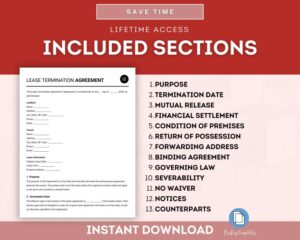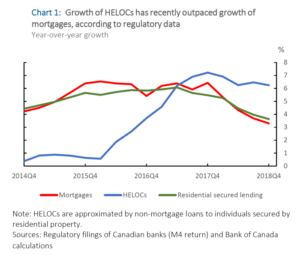
Welcome to the wild world of Probate and trusts, where your assets can either take a leisurely stroll through the court system or do a high-speed cha-cha thanks to the magic of trusts! Imagine navigating a maze where every turn brings you closer to securing your family’s future while possibly avoiding a few dead ends. Let’s unravel this intricate tapestry of estate management, sprinkled with a dash of humor and a pinch of wisdom!
Here, we’ll dive into the probate process, explore the fascinating realm of trusts, and uncover the financial secrets that come along for the ride. Whether you’re planning ahead or just trying to figure out why Uncle Joe’s old lamp is still in your living room, we’ve got the scoop you need to navigate your estate planning adventure.
Understanding Probate

Probate is like that pesky piece of furniture that everyone needs but no one wants to deal with—necessary yet a bit burdensome. It’s the legal process that takes place after someone passes away, determining how their assets are distributed and debts settled. Imagine a giant game of Monopoly, but instead of passing “Go,” you’re passing through the court system. Getting a grasp on probate is crucial for anyone looking to manage estates effectively and avoid the potential chaos that can ensue if things are left unchecked.The probate process involves several steps: validating the deceased’s will (if one exists), identifying and inventorying their assets, paying off any debts, and finally, distributing the remaining assets to the rightful beneficiaries.
This process is significantly important as it legally ensures that the deceased’s wishes are honored and that their estate is handled in an orderly manner. Fumbling through the probate process can lead to family disputes, financial losses, and delays that make even the most patient of saints pull their hair out.
Common Challenges in Probate
Navigating the choppy waters of probate can often feel like trying to swim upstream in a river full of alligators. Here are some common challenges that may arise during the probate process and tips for steering clear of them:
- Lengthy Timeline: Probate can be a drawn-out affair, sometimes taking months or even years. This can lead to frustration for beneficiaries who are eager to receive their inheritance.
- Legal Fees: You may find that probate lawyers charge for every little thing, from paperwork to phone calls. Keeping an eye on costs is essential to avoid the proverbial “draining the estate” situation.
- Disputes Among Beneficiaries: Imagine a family reunion where everyone is suddenly at each other’s throats—this is what can happen during probate without clear communication about the will. Open discussions can mitigate this risk.
- Asset Valuation Issues: Determining the fair market value of assets can be as tricky as finding Waldo in a crowded picture. Obtaining professional appraisals can ensure everyone is on the same page.
Roles of Executors and Beneficiaries
In the game of probate, executors and beneficiaries both play pivotal roles, akin to the king and queen on a chessboard—each essential to the game, but with very different responsibilities. The executor is usually a trusted individual named in the will who is tasked with overseeing the probate process. Their responsibilities include filing the will, managing estate assets, and ensuring debts are paid off before distributions are made.
On the flip side, beneficiaries are the lucky individuals who stand to inherit from the estate. They may have varying degrees of involvement in the process, sometimes providing support and sometimes sitting back, sipping coffee while watching the executor do all the heavy lifting.
“An executor is like a referee, ensuring that everyone plays by the rules while beneficiaries are sometimes more interested in scoring goals.”
The collaboration between executors and beneficiaries is crucial for a smooth probate process. Miscommunication or lack of cooperation can lead to unnecessary delays and, heaven forbid, family drama that could rival a reality TV show. Clear, open communication can help everyone involved understand their roles and expectations, fostering a cooperative environment as the estate moves through probate.
The Role of Trusts in Estate Planning

When it comes to estate planning, trusts are like the Swiss Army knives of the financial world—versatile, handy, and capable of performing multiple functions that can save your loved ones from a whole lot of hassle. While some folks might be content with just a will, trusts can provide an additional layer of protection and control over your assets. So, let’s delve into the wonderful world of trusts, where estate planning meets creativity, and maybe a sprinkle of mischief.Trusts serve various purposes, and there are several types you can choose from, each with its own unique flair.
Here’s a quick overview of the different types of trusts and their purposes:
Types of Trusts and Their Purposes
Trusts come in various shapes and sizes, each designed to meet specific estate planning needs. Here are a few popular types:
- Revocable Living Trust: This trusty sidekick allows you to retain control of your assets during your lifetime while also avoiding probate after you kick the bucket. They’re like the superhero of estate planning—flexible, adaptable, and ready to save your heirs some serious time and money.
- Irrevocable Trust: Once you put your assets in this trust, there’s no turning back. It’s like that one bad haircut you can’t undo. However, these trusts can provide tax benefits and protect your assets from creditors.
- Testamentary Trust: Created through your will, this trust springs to life upon your passing. It allows you to manage how your assets are distributed, particularly if you have minor children who might not be ready to inherit a fortune just yet.
- Charitable Trust: If you have a heart for giving, this trust lets you contribute to your favorite charity while receiving tax benefits. It’s the perfect way to leave a lasting legacy while doing good in the world.
- Special Needs Trust: This one is tailored for individuals with disabilities, ensuring they receive support without jeopardizing their eligibility for government benefits. It’s like a safety net woven with care and compassion.
Establishing a trust can often be much more beneficial than simply going through probate. Let’s explore a few of these benefits:
Benefits of Trusts Versus Probate
When comparing trusts to probate, the advantages of trusts become clear. Here are some key points highlighting why trusts often win the battle:
- Speed: Trusts can facilitate the swift transfer of assets, while probate can be a long, drawn-out affair. Nobody wants their estate stuck in legal limbo like a traffic jam on a Monday morning!
- Privacy: Trusts keep your affairs private, unlike probate, which is a public process. With a trust, your financial situation won’t end up on the gossip columns of the local newspaper.
- Control: With trusts, you can dictate how and when your assets are distributed, ensuring that your heirs don’t blow it all on a yacht and a pet alligator.
- Cost-Effectiveness: Avoiding probate can save your loved ones significant legal fees and reduce the overall cost of settling your estate. Who doesn’t love saving some dough?
In creating an effective estate plan with trusts, several key factors must be considered. Here’s what you should have on your radar:
Key Factors in Creating an Estate Plan with Trusts
When setting up trusts, take the following factors into account to ensure your plan is as solid as a rock:
- Asset Inventory: Take stock of what you own! Knowing which assets will go into your trust is crucial—whether it’s your house, your prized stamp collection, or that mysterious jar of coins you’ve been hoarding.
- Beneficiaries: Clearly define who will benefit from your trust. This isn’t just about who you like best; consider the age, maturity, and financial savvy of your beneficiaries.
- Trustee Selection: Choose a trustworthy individual or institution to manage the trust. This person should be responsible, organized, and preferably not have a gambling addiction.
- Tax Implications: Consult with a tax professional to understand any potential tax benefits or consequences that may arise from your trust. Tax laws can be trickier than a cat on a hot tin roof.
- Regular Reviews: After establishing your trust, review it periodically to ensure it meets your evolving needs and circumstances. Life changes, and so should your estate plan!
“Proper planning with trusts can turn a potential estate mess into a well-organized symphony of asset distribution.” – Anonymous Estate Planning Guru
With trusts in your estate planning arsenal, you’re set to navigate the complexities of asset distribution with style and grace. Now, let the planning begin!
Financial Considerations Related to Probate and Trusts
When it comes to navigating the oft-treacherous waters of probate and trusts, financial considerations can feel like hiking up a mountain with a backpack full of bricks. Understanding how debts and financial management strategies play into this process can not only lighten your load but also make the journey a tad less daunting. Let’s dive into the financial intricacies that make up this estate planning adventure!
Relationship Between Probate and Debt Management Strategies
Probate is not just a simple walk in the park; it’s more like a financial obstacle course where debts can pop up like surprise challenges. Understanding the relationship between probate and debt management strategies helps beneficiaries and executors navigate these challenges with grace and maybe even a bit of humor. When a loved one passes away, their debts don’t simply evaporate into thin air.
Instead, they often take a seat at the probate table, awaiting their turn to be addressed. Here are a few important points to consider regarding this relationship:
- Debt Priority: In probate, debts must be settled before any assets are distributed. This means the estate’s assets might be depleted faster than a kid with a new pack of gum.
- Personal Responsibility: Executors should know that they are not personally liable for the deceased’s debts, but they must manage the estate to cover those debts effectively.
- Creditors in the Mix: Creditors may file claims against the estate during probate, providing a clear timeline of when debts need to be addressed, much like a grocery list that demands attention.
Options for Debt Relief and Impact on Probate Proceedings
Exploring options for debt relief can feel like searching for a hidden treasure in a pirate’s lair, but when it comes to probate, it’s crucial to understand how these options can impact the proceedings. Various forms of debt relief, such as bankruptcy and negotiation, can significantly alter the financial landscape of an estate.Consider the following options and their potential impact during probate:
- Bankruptcy: Filing for bankruptcy before passing can clear some debts but may also affect how much the estate is worth. Think of it as a financial spring cleaning—necessary, but it can make the house look a bit bare.
- Debt Negotiation: Negotiating with creditors can reduce the amount owed. This strategy can lighten the financial burden on the estate, making creditors more manageable than a toddler with a cookie.
- Debt Forgiveness: Certain debts may be eligible for forgiveness, depending on the circumstances, allowing the estate to breathe easier and focus on distributing assets.
Credit Tips During Estate Management
Managing an estate or trust can be a bit like juggling flaming torches—exciting, but you definitely want to avoid dropping them! Keeping track of credit and maintaining good financial health is essential during this transitional phase.Here are some credit tips that can help individuals navigate the complexities of managing estates and trusts:
- Monitor Your Credit Score: Keeping an eye on your credit score can help individuals spot any discrepancies or issues that may arise from managing an estate. It’s like having a financial watchdog, barking at any potential problems.
- Limit New Credit Applications: Instead of applying for new credit while managing an estate, it’s wise to limit applications. This helps maintain a stable credit score during a time that’s anything but stable.
- Communicate with Creditors: Transparency is key! If debts are being managed, let creditors know about the situation. They might not be as scary as they seem when approached with honesty.
Conclusion
In conclusion, Probate and trusts are like the dynamic duo of estate management, ensuring your legacy is handled with care and a touch of flair. With the right knowledge and a sprinkle of planning, you can transform a seemingly daunting process into a manageable one. So grab your metaphorical map and compass, and let’s embark on this journey with confidence and maybe even a chuckle or two!
Quick FAQs
What is probate?
Probate is the legal process where a deceased person’s assets are distributed according to their will or state law, proving the will’s authenticity and settling debts.
How long does the probate process take?
Probate can take anywhere from a few months to several years depending on the complexity of the estate and any disputes that may arise.
What are the benefits of setting up a trust?
Trusts can help avoid probate, provide greater control over asset distribution, and potentially reduce estate taxes.
Can trusts help with debt management?
Yes, trusts can provide a structured way to manage debts and protect assets from creditors during the probate process.
Do I need a lawyer for probate or trusts?
While not strictly necessary, having a lawyer can help navigate the complexities of probate and trusts, ensuring that everything is done correctly.






